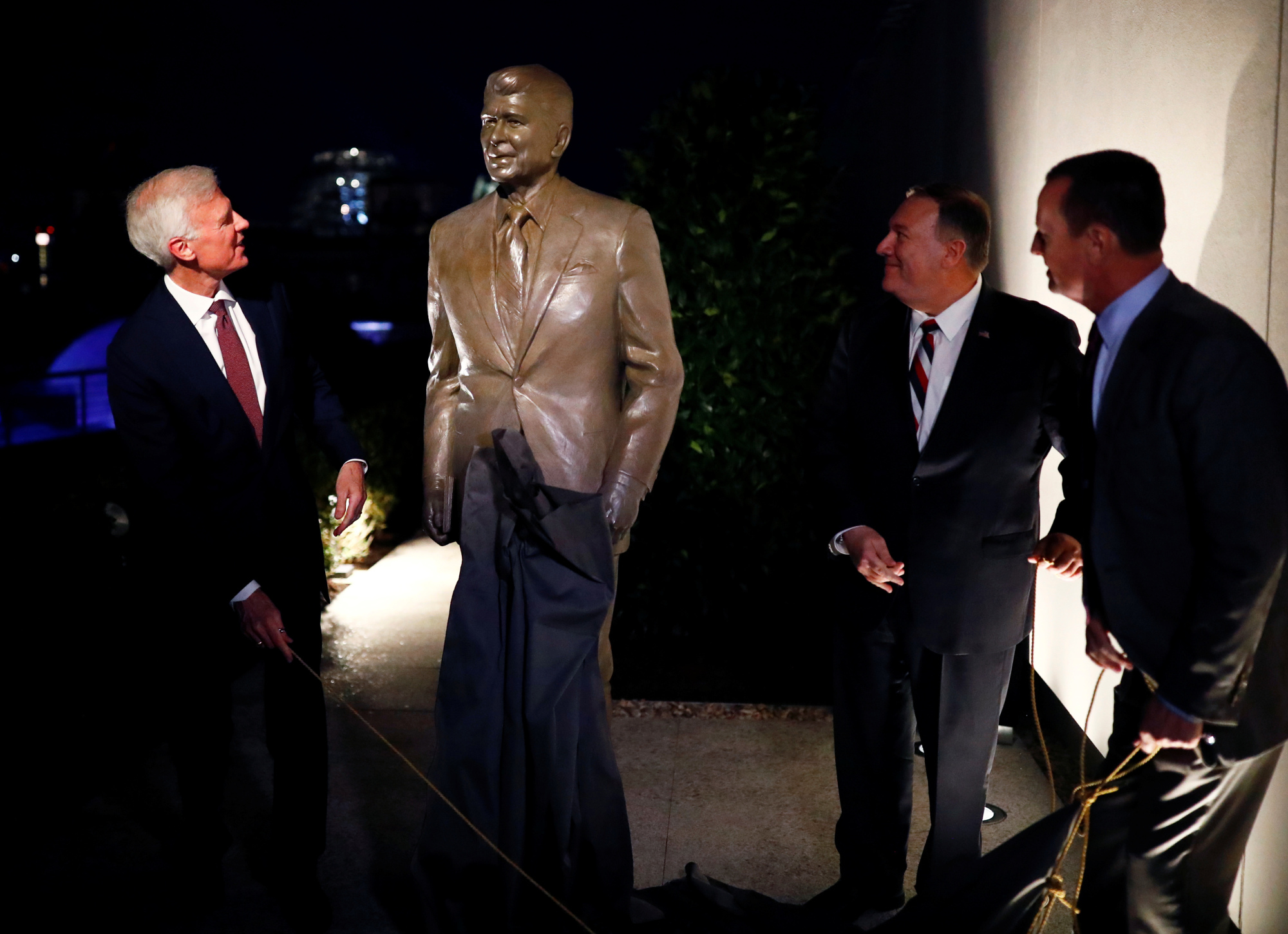It's a sign of the times that an anniversary that should have showcased U.S.-German unity has instead turned into a trans-Atlantic spat. Nov. 9 marked the 30th anniversary of the opening of the Berlin Wall, an event that symbolizes the triumph of the West in the Cold War. Yet the United States and Germany have been engaged in a tussle over an op-ed article written by Germany's foreign minister, and by the placement in Berlin of a statue of U.S. President Ronald Reagan. The dispute would be totally forgettable, except that it testifies to a trans-Atlantic divide over what caused the end of the Cold War — and it has implications for U.S. alliance management and geopolitical strategy today.
The hubbub started in early November when Heiko Maas published the article, which seemed to go out of its way to credit everyone except the U.S. for helping overcome the Cold War division of Europe. A few days later, the U.S. State Department unveiled a state of Reagan — who urged Soviet leader Mikhail Gorbachev to "tear down this wall" in 1987 — on the grounds of the U.S. Embassy in Berlin. The location was notable because Berliners and their city government have long resisted U.S. efforts to have the statue placed elsewhere, leaving no option but to erect it on American territory within the embassy compound.
The episode led some American commentators to accuse Germany of ingratitude. And it doubtless caused much European eye-rolling, given that Americans themselves are not exactly exemplars of trans-Atlantic solidarity at the moment. But it's more instructive to use the controversy as a way of highlighting differences in how Americans and many Europeans understand the Western victory in the Cold War.



